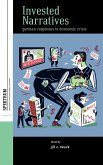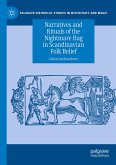Despite the three decades that have passed since the fall of the Berlin Wall, the historical narrative of East Germany is hardly fixed in public memory, as German society continues to grapple with the legacies of the Cold War. This fascinating ethnography looks at two very different types of local institutions in one eastern German state that take divergent approaches to those legacies: while publicly funded organizations reliably cast the GDR as a dictatorship, a main regional newspaper offers a more ambivalent perspective colored by the experiences and concerns of its readers. As author Anselma Gallinat shows, such memory work-initially undertaken after fundamental regime change-inevitably shapes citizenship and democracy in the present.
Hinweis: Dieser Artikel kann nur an eine deutsche Lieferadresse ausgeliefert werden.
Hinweis: Dieser Artikel kann nur an eine deutsche Lieferadresse ausgeliefert werden.








